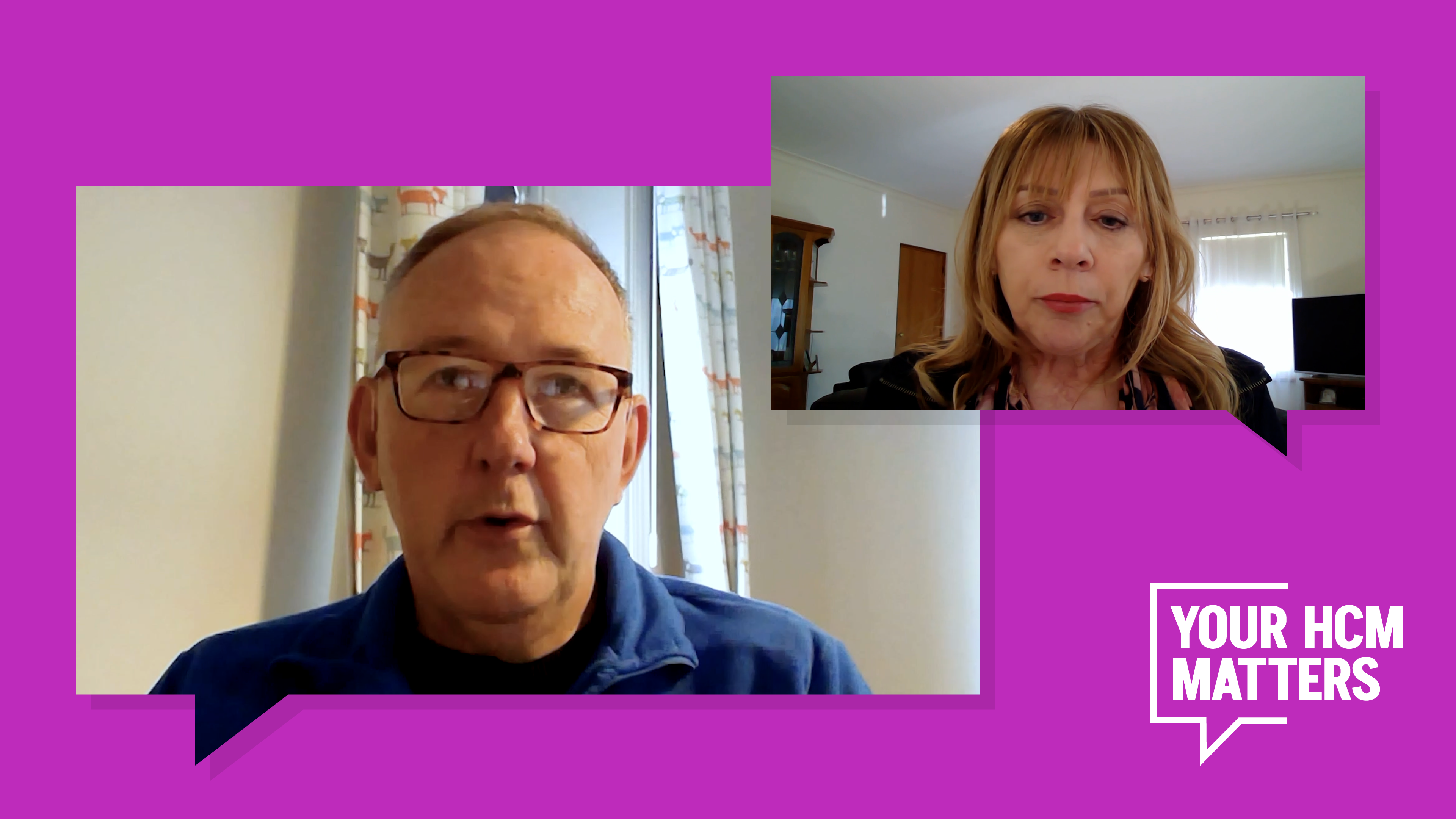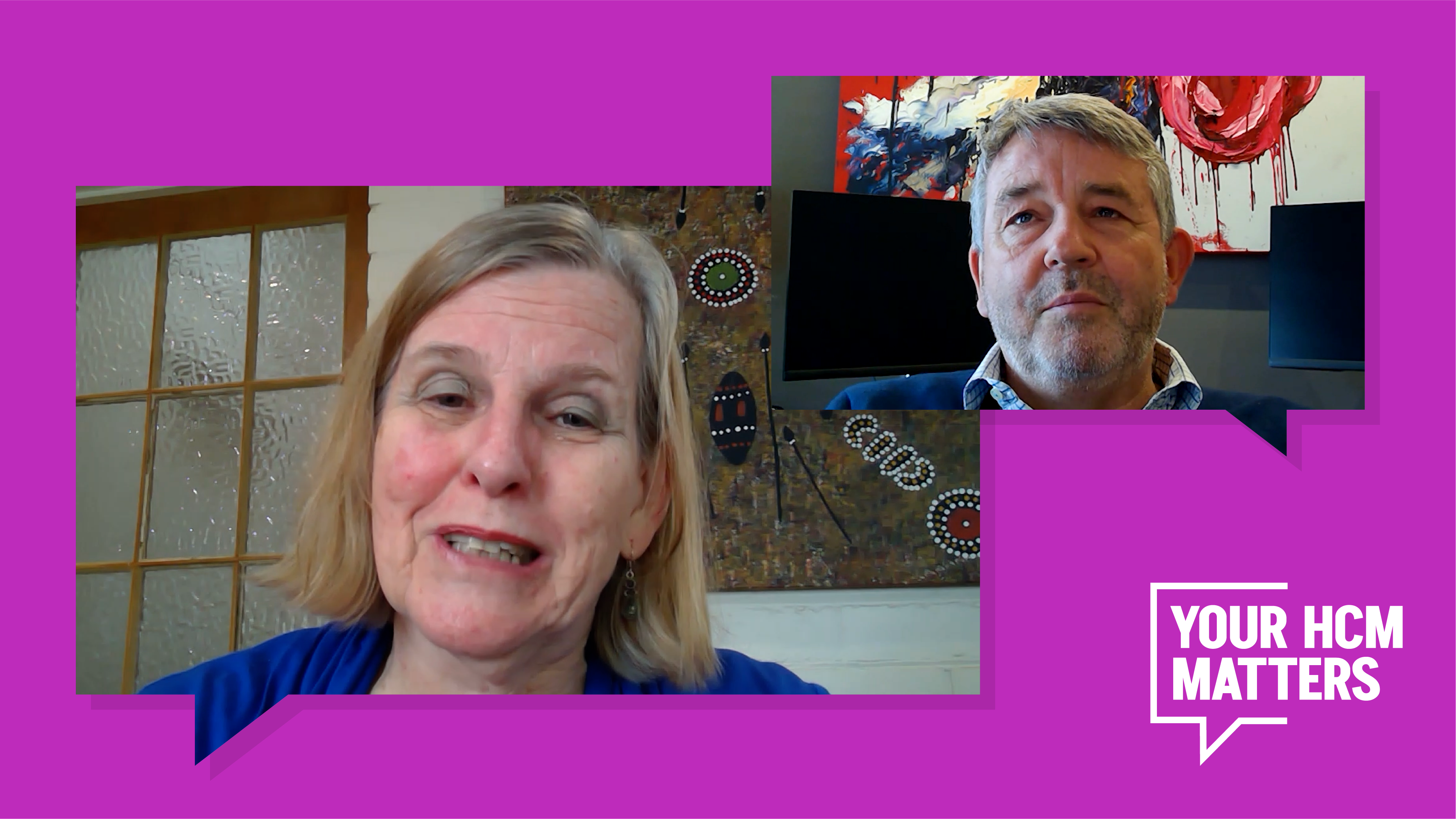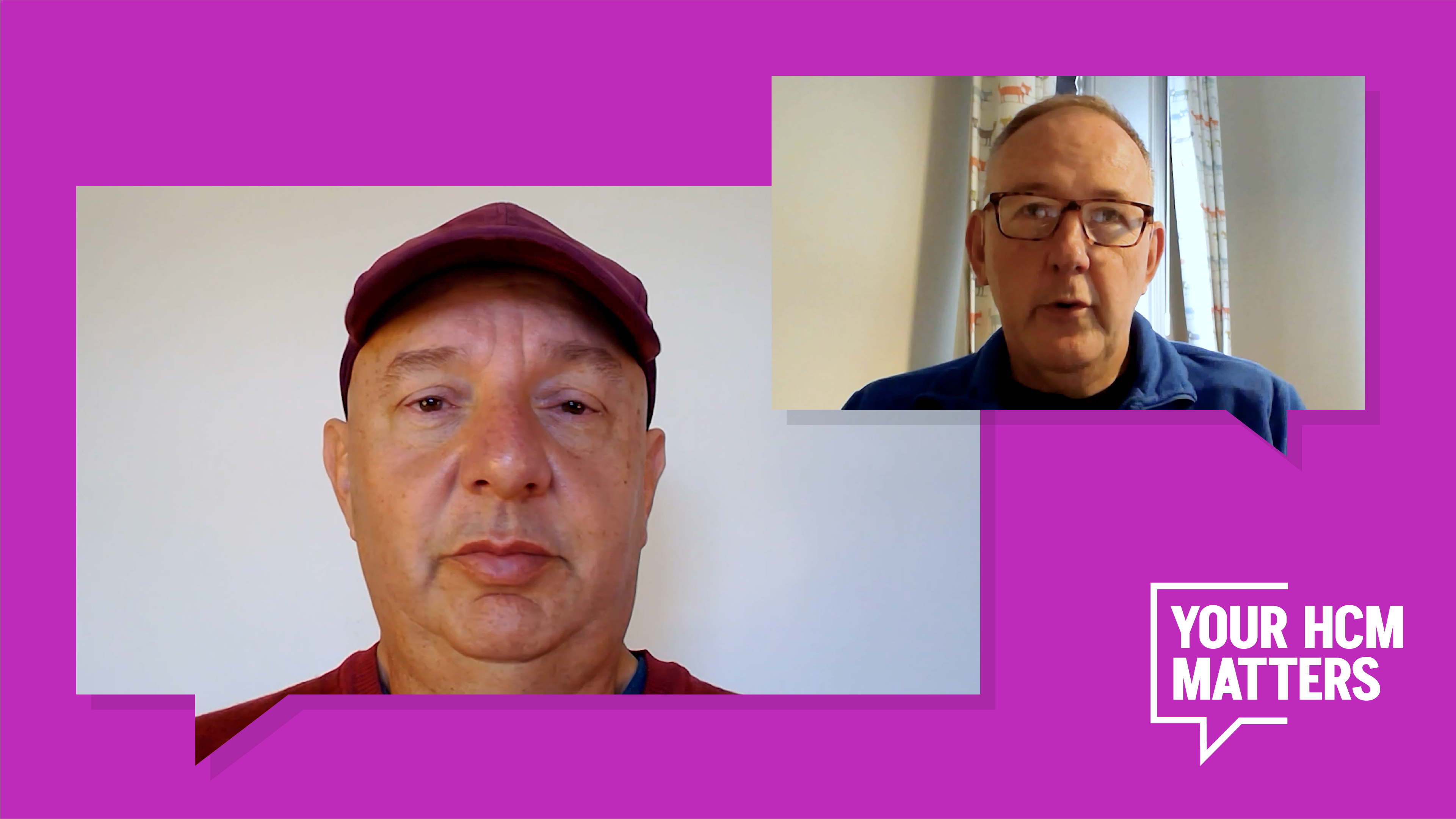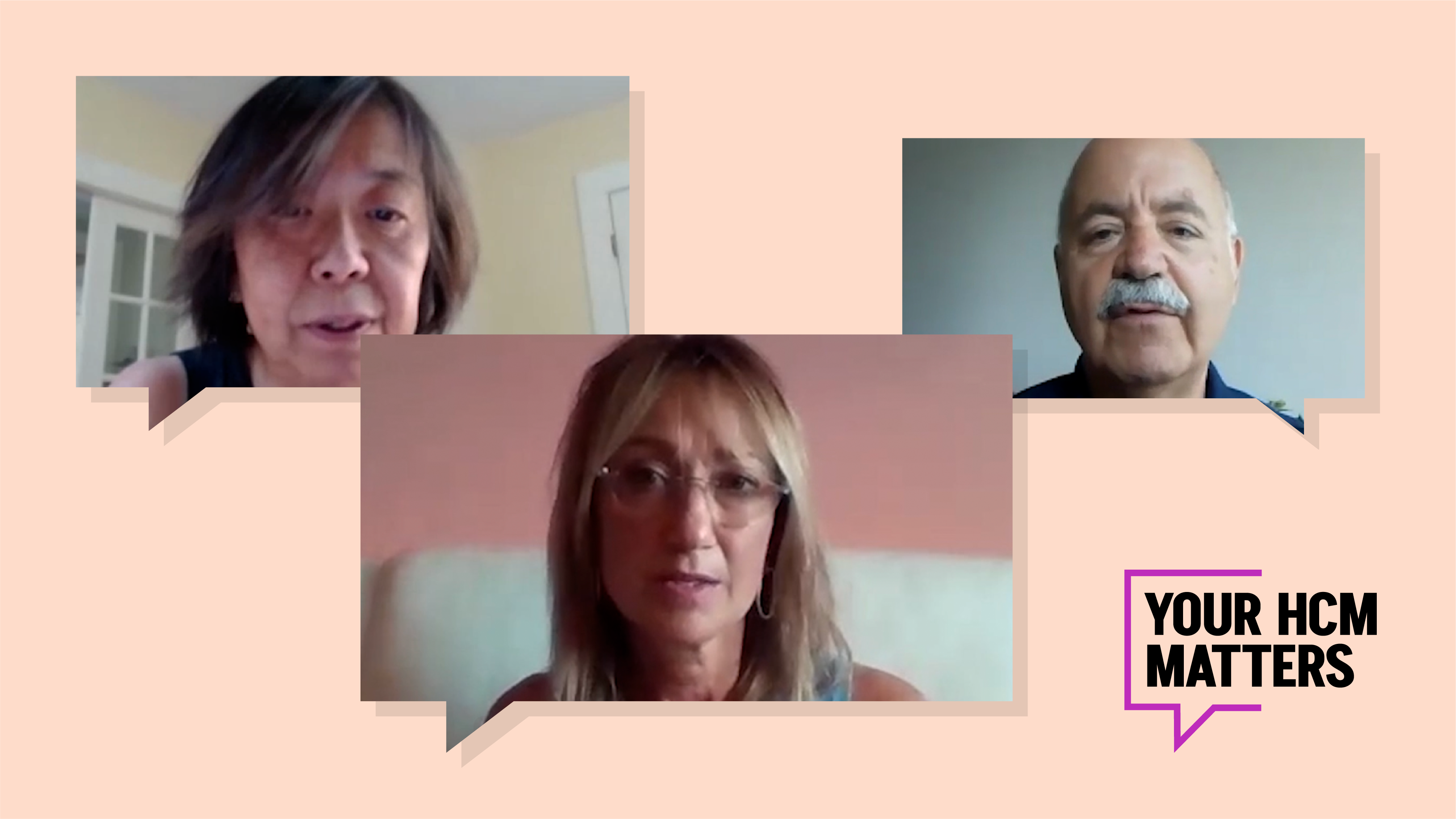Signs and Symptoms
Speak with your cardiologist about your symptoms and understand your treatment options.

What are the signs and symptoms of HCM?
HCM can sometimes be described as a ‘hidden disease’ because people who have it do not always experience symptoms or tend to change their lives to avoid symptoms. When HCM symptoms do appear, they can be difficult to recognise due to their non-specific nature, as they often overlap with signs of other health conditions.
As HCM can be difficult to recognise, knowing the common symptoms can help you to discuss your experiences with your cardiologist.
Common symptoms of HCM include:

Shortness of breath

Rapid heartbeat

Chest pain (e.g. pressure, tightness, squeezing)

Dizziness or light-headedness

Unexplained tiredness

Fainting
While there are common symptoms to watch for, the provided list of symptoms may not be complete and experiencing these symptoms does not necessarily indicate that you have HCM. Only a qualified medical professional can offer an accurate diagnosis.
HCM can affect people in different ways. For some people, symptoms come and go, and for others, symptoms can go on for a long time. Some may not experience symptoms right away or even at all, yet the disease may continue to progress.
Hear from real patients about their HCM symptoms

“I was struggling just picking up two chairs and moving them. I was out of breath; I was getting sweaty. I just couldn’t understand why.”
Ian

“I was just sitting on the sofa at home one day, and I said to my mum, I couldn't breathe. I felt breathless just sitting down.”
Steffi
Could HCM affect your overall wellbeing?

Whilst many people will never experience symptoms, for others, HCM can make daily activities challenging and it may impact a person’s quality of life.

Symptoms may limit physical activity, make simple tasks more difficult, and, if they worsen over time, impact work and emotional wellbeing.

If you notice that the symptoms are affecting your daily life, it's important to speak to your cardiologist.
Hear from Australian patients with HCM as they describe their physical, emotional and social challenges and how talking openly with their doctors helped them find ways to manage HCM.
Living with HCM: A physical journey

Living with HCM: Beyond isolation

Living with HCM: Coping with the emotional burden

HCM can have a serious health impact
People with HCM are more likely to develop abnormal heart rhythms (such as atrial fibrillation, which can lead to blood clots), heart failure, stroke, and in rare cases, sudden cardiac death (SCD).
Whilst HCM can develop at any age, in some people, the first sign of it can be through SCD, particularly during teenage years or early adulthood.

Monitor your symptoms
Monitoring your HCM symptoms and watching out for any unexplained or worsening symptoms is an important part of managing HCM. The symptoms of HCM can continue to affect your day-to-day activities even if you are currently being treated for the condition.
Use 'My HCM Check-in' to maintain a record of which HCM symptoms you are experiencing and how they may be affecting you. You can then bring this along to your next appointment to discuss with your cardiologist. If any of your symptoms are severe, please contact your cardiologist or get help right away.
CV-AU-2500002. April 2025.
